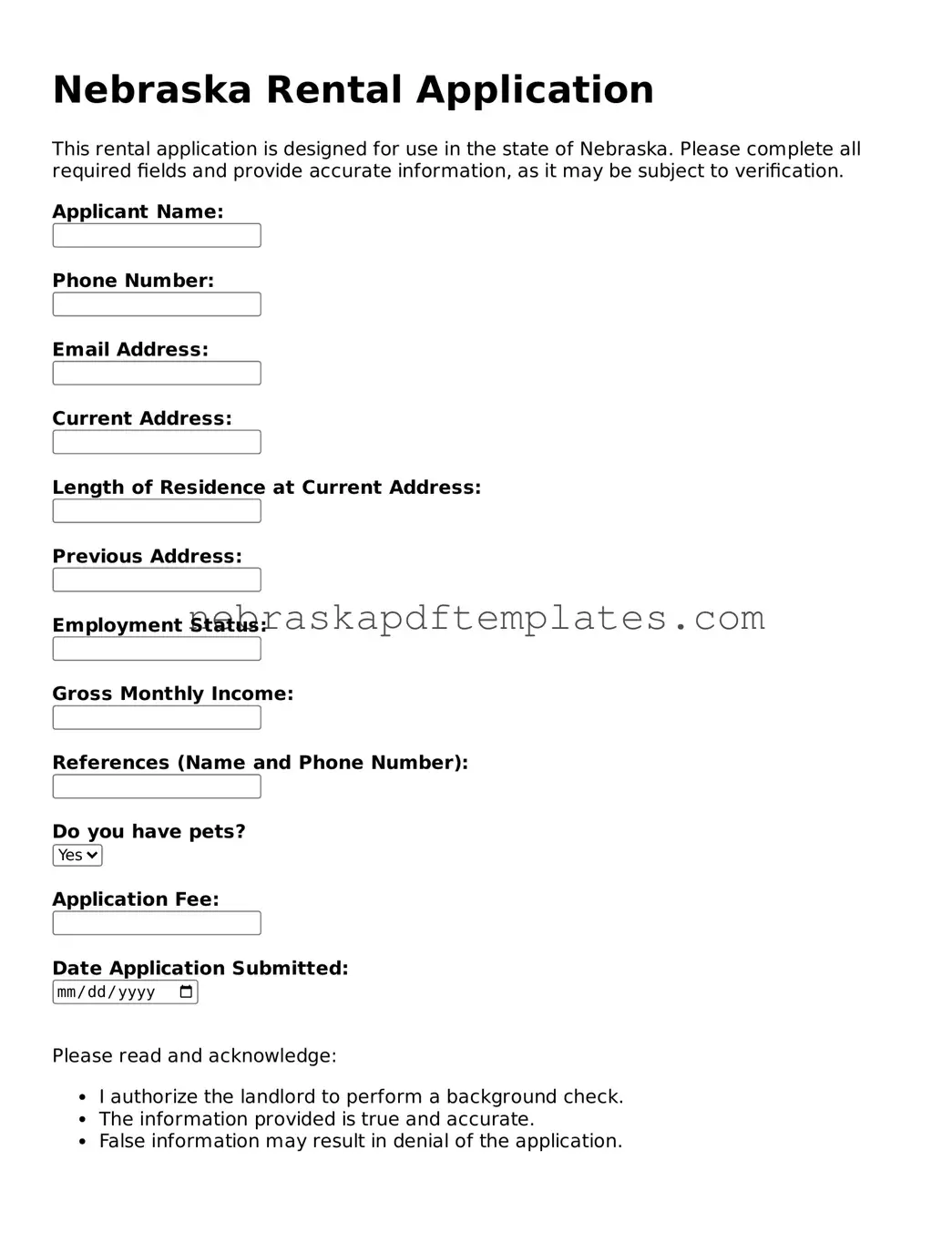The Nebraska Rental Application form is a document used by landlords to screen potential tenants. This form collects essential information about the applicant, such as their employment history, rental history, and personal references. By completing this form, landlords can make informed decisions about who to rent their properties to.
Why do I need to fill out a rental application?
Filling out a rental application is crucial for both tenants and landlords. For tenants, it provides an opportunity to present themselves positively and demonstrate their reliability. For landlords, it serves as a vital tool to assess the suitability of applicants. A thorough application helps ensure that the tenant can pay rent on time and will take care of the property.
A standard Nebraska Rental Application will usually ask for the following information:
-
Full name and contact information
-
Social Security number or other identification
-
Employment details, including current employer and income
-
Rental history, including previous addresses and landlord contact information
-
Personal references
-
Consent for background and credit checks
Is there a fee to submit a rental application?
Many landlords charge a fee to process rental applications. This fee typically covers the costs of background checks and credit reports. The amount can vary widely, so it’s essential to ask the landlord about any application fees upfront. Be sure to clarify whether the fee is refundable if your application is denied.
How long does the application process take?
The time it takes to process a rental application can vary. Generally, landlords aim to complete the process within a few days. However, factors such as the responsiveness of previous landlords or employers can affect the timeline. If you haven’t heard back within a week, it’s reasonable to follow up with the landlord for an update.
What happens after I submit my application?
Once you submit your application, the landlord will review the information provided. They may conduct background checks, contact your references, and verify your employment and rental history. If everything checks out, the landlord may offer you a lease agreement. If there are issues, they may reach out for clarification or deny your application.
Can I appeal if my application is denied?
If your rental application is denied, you have the right to inquire about the reasons. The Fair Credit Reporting Act requires landlords to provide a notice that explains the denial. If you believe the decision was made in error, you can request a review. However, keep in mind that landlords are not obligated to change their decision.

